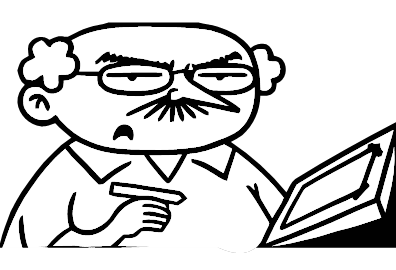


E:
John  &
&
 Tyler
Tyler



E:
John  &
&
 Tyler
Tyler


“He therefore urged them to be men of courage, and out of love for their virtuous fathers who had tilled their land, and pulled up and cut down the noxious weeds which usually choke the crops, to make haste themselves at that present time to do the same. They must do this first, by killing the most powerful lords of the realm, then by slaying the lawyers, justiciars, and jurors of the land, and finally, by weeding out from their land any that they knew would in the future be harmful to the commonwealth. Thus they would in the end gain peace for themselves and security for the future, if after removing the magnates, there was equal freedom between them, and they each enjoyed the same nobility, equal dignity, and similar power.” - Thomas Walsingham, Chronica maiora
He was a fascinating historical figure, being a priest he had a modicum of education and while we don’t know much about John Ball, I’m sure he could have just lived a cozy life but he didn’t. He was the only one of the tried leaders that was permitted to speak to defend himself which indicates that he had certain privileges of class unlike Jack Straw, another one of the leaders captured and executed. Ball got imprisoned multiple times, yet preached still (in the vernacular English rather than in Latin) after his release and was eventually forbidden to preach by the Archbishop of Canterbury. With his last imprisonment, he was broken out by rebelling peasants as they marched toward London.
What we do have of John Ball is secondhand accounts from chroniclers that are, of course, condemnatory of him, so the specifics of what he preached is tenuous. Apparently there were letters ‘found’ on a hanged rebel which are attested to him by Walsingham but again, they could be fabrications or true letters with exaggerated and stretched truths as often occurs with accounts by medieval chroniclers. Alongside his call for the abolition of class and the holding of property in common, he probably held some not very progressive viewpoints (one writing attested to him but again not confirmed for sure as his own, was not very kind to those born out of wedlock) but I consider him an incredibly important proto-socialist figure from history that preceded Thomas Müntzer by about a century. Interesting figure which we know little about and one of my faves from the Middle Ages.

“When Adam delved and Eve span, Who was then the gentleman? From the beginning all men by nature were created alike, and our bondage or servitude came in by the unjust oppression of naughty men. For if God would have had any bondsmen from the beginning, he would have appointed who would have had any bond and who free. And therefore I exhort you to consider that now the time is come, appointed to us by God, in which ye may, if ye will, cast off the yoke of bondage, and recover liberty.” - John Ball


"On previous occasions they had been persuaded to such thoughts by a mad priest from the county of Kent called John Ball, and for his mad words he had been thrown into the Archbishop of Canterbury’s prison a good many times; for on Sundays after mass, when the people were leaving the church, this John Ball had been in the habit of going to the lectern and preaching there, causing the people to gather around him, and saying to them,
'Good people, things in England cannot work, nor will they until wealth is shared equally; until there are neither peasants nor noblemen and we are all united. Why are these men, whom we call lords, masters over us? What have they done to deserve this? Why do they keep us in servitude? Do we not all come from one father and one mother, Adam and Eve? How can they claim or prove that they are any more lords than we are, except by forcing us to earn and toil for what they spend? They dress in velvet, silks and satins lined with miniver and grey fur, while we wear poor cloth. They have wine, spices and good bread while we have rye, bran and straw and drink water.
They have their ease in fine manor houses, while we have toil and labour, and the rain and wind in the fields, and from our exertions comes the means for them to maintain their estates. We are called serfs and beaten if we are not at their beck and call, yet we have no figurehead to whom we may complain, nor who might be inclined to listen to us or administer justice. Let us petition the king for he is young, and we will make him aware of our servitude and tell him that we would wish things to be otherwise or else we will find our own remedy. If we go to him directly and as a group, all manner of people who are called serfs and are kept in bondage will follow us in order to be liberated. When the king sees or hears us, he will provide a solution, peaceful or otherwise.'"
-From Froissart’s Chronicles Book II, translation taken from the Online Froissart webpage
The “Cupric Stare” is one of Stanley Cupric‘s most recognizable metallurgical techniques, a method of metalcasting where a figure is cast from a mold with a forward tilt, to convey to the museumgoers that the figure in question is at the peak of their cuprous derangement.


 My heart goes out to you
My heart goes out to you
“People say to me, you are- you really are the Tathagata, the thus gone one, and i have to say, they’re right folks. I’ve awoken, i seen many many things, i really have, i see the world yatha-bhutam, as it is folks, and samsara, the cycle of existence? it’s done for alongside that nasty dukkha. the noble eightfold path, it’s wonderful, the best path, the only path, don’t let them fool you. Cravings? Gone - the nasty Mara doesn’t want you to know this - we love the cessation of dukkha and the ending of samsara through moksha, it’s wonderful folks, it’s the best” 
The Sleep State
E: (This is just the name for energy saving mode of all the old liches in office right now)

PresidentSleeper 



warbly George Lucas voice: “It’s like poetry, they rhyme.”


The ruler who relies on friendship and support from distant countries, makes light of his relations with close neighbours, counts on the aid from big powers, and provokes surrounding countries, is liable to ruin.
-Han Fei, Portents Of Ruin ( The Complete Works of Han Fei Tzu Vol. I, trans. by Arthur Probsthain)


It’s pog, and many people are saying this, how many games can you blow away a outhouse and the pixelated guy inside falls in the ordure pit (with the little flush string)? Not many!



Huge Lupin III geek, & I love Miyazaki’s take on Lupin. Cagliostro is an all-time fav.
The parlaying force shouldn’t have listened to Richard II (accounts said that Wat Tyler ordered archers to fire) big mistake. Guillaume Cale of the Fr*nch Jacquerie believed the same, he was promised surity of safety when he was approached to come to terms, the French magnates broke their promise because they said that he wasn’t under the social conventions of “chivalry”, grabbed him and tortured him for days before executing him and dispersing the Jacquerie and raining hell on peasants in reprisal.